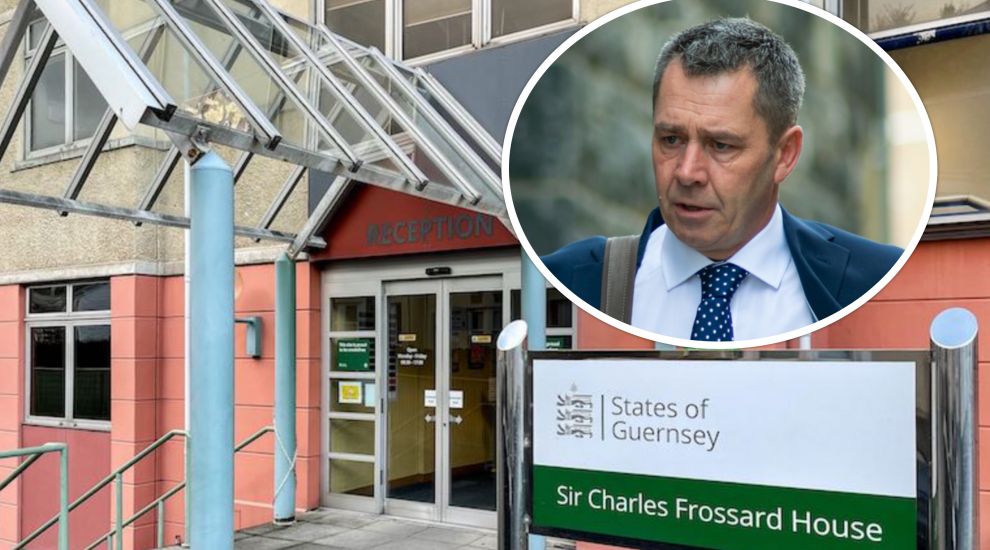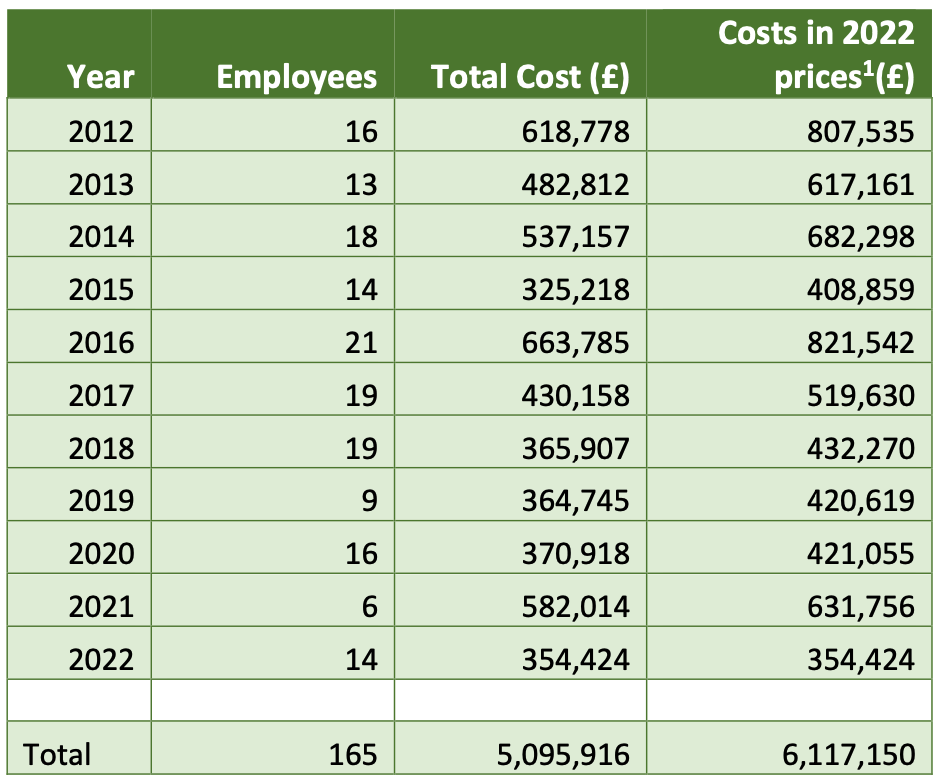


Nearly £600,000 was spent on compromise agreements in 2021 after six staff members left the States of Guernsey.
The figure has been revealed after several Rule 14 questions were put to the Policy & Resources Committee by Deputy Marc Leadbeater.
“The subject of such agreements has arisen a few times in discussions I’ve had over the last 5 or 6 years and I was interested to learn exactly how much they were costing the taxpayer,” he said.
“The figures are considerably higher than I expected, and I noted that 2019 was quite a bumper year for those leaving the organisation with such an agreement, because we paid out an average of just over £40,500.00 to each of them.”
Deputy Leadbeater asked for the number of staff members that left government between January 2012 and December 2022, the cost of those departures and a breakdown of the costs. 
Pictured: P&R provided Deputy Leadbeater a breakdown of compromise agreements.
The President of P&R, Deputy Peter Ferbrache, said: “In accordance with data protection principles, and employment law practice, any employee receiving a termination payment, set out in a Compromise Agreement may reasonably expect the existence of such an agreement, and details of it, to remain confidential.
“Hence the Committee will always take care when providing information relating to such agreements, especially where there might be a risk of identifying individuals. The Committee is grateful that the questions are sufficiently broad to enable the responses set out below.
“The use of Compromise Agreements is enshrined in The Employment Protection (Guernsey) Law, 1998, as amended. In general, Compromise Agreements can be a useful tool to enable an employer and its employee to bring an employment relationship to an end. Whilst the States of Guernsey is a good and fair employer there are occasions where the best solution for the employer and employee is to end the relationship and a Compromise Agreement remains an appropriate mechanism to achieve this.” 
Pictured: Deputy Ferbrache (left) answered Deputy Leadbeater’s (right) questions.
“I looked at the figure for 2021,” said Deputy Leadbeater, “where the average cost to the taxpayer for the 6 people leaving the organisation was £582,014.00, that means those 6 individuals were given an average pay-out of a staggering £97,000.00 each.”
“Granted there were a couple of high profile exits in 2021, but this equates to the same as 6 people leaving States employment and winning the lottery at the same time, and that lottery being funded solely by the taxpayer.
“The numbers involved are not insignificant and I believe that these figures should automatically be made public without the need for me to submit Parliamentary Questions, and will ask P&R to publish the stats on an annual basis.”
Deputy Leadbeater also requested details on “indirect payments” made to employees leaving government, including enhanced pension contributions, the retention of vehicles and the cost of gardening leave.
“Since the pension rules were changed in 2015, 'enhanced pension' payments as part of a Compromise Agreement are not possible,” replied Deputy Ferbrache.
“I am not aware of any retained vehicles or similar benefits being awarded. There are occasions where operational vehicles that are no longer suitable for operational duty are disposed of through a sealed bidding process, but these arrangements are managed between the employee and the relevant service area.
“‘Gardening leave’ is not something that is widely used in the States of Guernsey and data relating to it is not available. Any absence that could be construed as Gardening Leave in the context of this question is normally time taken in lieu of working a notice period. There are occasions were some employees serve their notice period away from the organisation or in deployment to other roles, this may be done to protect the interests of the organisation.”
Comments
Comments on this story express the views of the commentator only, not Bailiwick Publishing. We are unable to guarantee the accuracy of any of those comments.